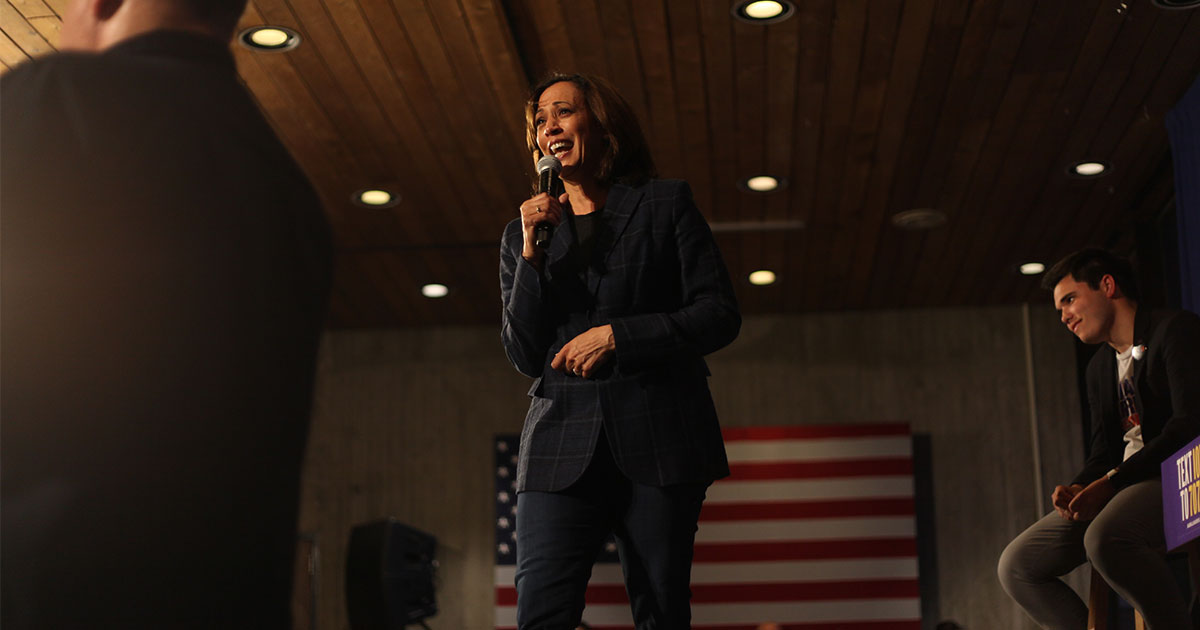VPs, the C-Suite, and How to Build Your Leadership Team

After weeks of speculation, former Vice President Joe Biden finally named Sen. Kamala Harris to be his running mate in the race for the White House. “You make a lot of important decisions as president,” said Biden, “but the first one is who you select to be your vice president.”
For sure, picking leaders for your organization is a critical decision, whether you are running a country, a Fortune 500 company, or a startup. No matter how capable you are, you need to surround yourself with good people, especially in these uncertain times.
“The challenges we face today cannot be solved by any one individual alone,” says Gaurab Bhardwaj, associate professor of management at Babson.
Here are some strategies to remember for when you’re hiring your leadership team. Finding candidates with business smarts is obviously important, but that is far from the only factor to consider.
Know Yourself
If you are a CEO looking to fill out your C-suite, the first thing to do, before hiring a single person, is to take a long, hard look at yourself. Do you know what your strengths and weaknesses are as a leader? Are you clear in your vision and values?
“First, you have to know you,” says Scott Taylor, associate professor of organizational behavior at Babson. “I call it self-work. A lot of leaders don’t do it enough. You need to be clear and remain clear about yourself. Otherwise, you won’t pick someone who will help.”
“Sit down and really try to understand them. Do they see the world in the same way? How do they define success at the end of the day?”
Scott Taylor, associate professor of organizational behavior
Indeed, if you are unsure of yourself and your company’s direction, then you likely won’t pick the right leaders to support you. “If CEOs are insecure and inward focused and have a need to control the narrative in the team, they tend to pick people who they are smarter than and/or more confident than,” says Taylor, who conducts research on leader assessment and development and serves as an executive coach. “That’s the worst-case scenario, but unfortunately, it’s becoming more common.”
People Skills
Bhardwaj’s research and teaching focuses on solving big problems in business and society. He believes companies nowadays need leaders with strong people skills and critical-thinking abilities. “Given the major economic and societal problems companies face, and the deep uncertainty about the future, I’d look for a leader who is a thinking person, has the ability to work with diverse stakeholders, treats people well, is well-informed about the world and the lives of others, and is curious and willing to learn and discover,” says Bhardwaj.
And, don’t forget about the simple yet essential quality of being nice. “I’d avoid pompous individuals who believe they know best,” says Bhardwaj.
A Different Way of Thinking
As detailed famously in Doris Kearns Goodwin’s book Team of Rivals, Abraham Lincoln named political opponents to his cabinet. “He choose rivals. It would be the equivalent of Barack Obama choosing Mitt Romney,” says Taylor. “It’s unheard of. It doesn’t happen. But, Lincoln wanted people who didn’t think like him. He was confident enough in his values and who he was as a person that he thought, ‘I can do this.’ ”
Of course, Taylor isn’t suggesting that CEOs necessarily need to name rivals to their C-suites, but, ideally, they will select people from different backgrounds and with different points of view. “The best practice is finding someone who is not like you and compliments the collective,” says Taylor. “Bring in different voices. Choose folks who will bring something you don’t have.”
Grab Lunch
Any C-suite candidates will undoubtedly go through a vigorous screening process, but truly to know whether someone is a good fit for your company and culture, you need to spend serious time with them. Grab lunch and talk, says Taylor.
“Sit down and really try to understand them,” he says. “Do they see the world in the same way? How do they define success at the end of the day?”
If a C-suite leader shares the same bedrock values as you and your organization’s culture, then any disagreements that arise between you won’t matter. “If you have shared ideals,” says Taylor, “you can overcome everything else.”
Posted in Insights




